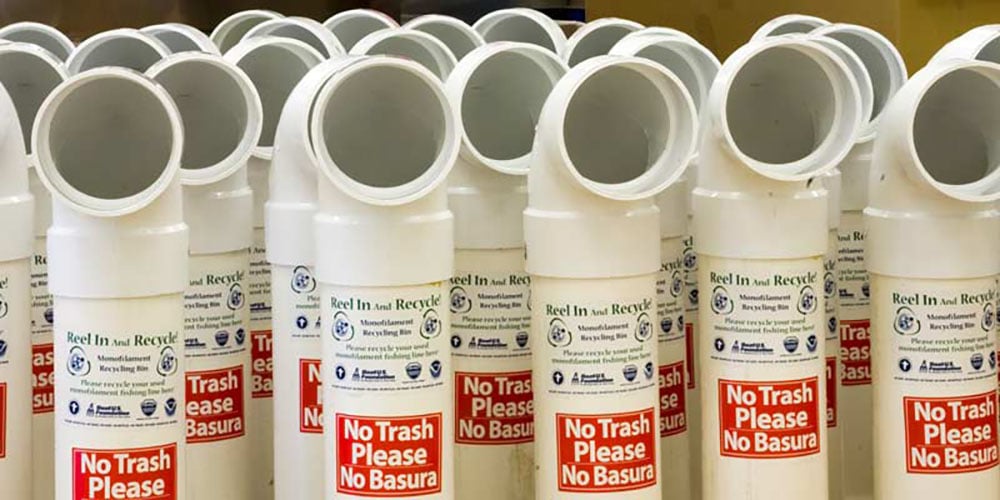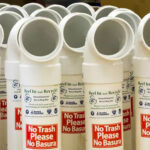February 2018 Winner: Lauren Hoefgen (Monofilament fishing line recycling tubes)

An update from Lauren…
Five years ago, I moved to the La Crosse area in order to attend the University of Wisconsin-La Crosse. I quickly realized how beautiful La Crosse was and how many anglers utilize the rivers and lakes nearby, year-round. According to the Fish and Wildlife Services, 10s of thousands of birds, fish, and other aquatic animals die every year due to monofilament fishing line being improperly recycled. Even if the fishing line is thrown into a garbage bin, birds often collect this fishing line to create their nests. They then can get caught up in the line or ingest the line which can result in death.
Monofilament fishing line recycling tubes are the solution to this problem! With the help of SOUP, I was able to raise over $2,000 which was able to produce 18 monofilament fishing line recycling tubes on French Island, Pettibone Park, around Lake Neshonoc in West Salem, and at the boat launches on the south side of La Crosse. Each monofilament recycling location has the tube itself and a sign from the BoatUS Foundation and the DNR that express the importance of recycling the monofilament fishing line. The top of the tube has a curve on it, so that birds are unable to pick up the fishing line, but anglers are able to place their unwanted fishing line inside of it in order to be recycled.
After the fishing line is in the recycling tubes, it will be collected 4 times a year and brought to the La Crosse DNR in order to be recycled. The DNR will then send the fishing line to the Berkeley Conservation Institute. The Berkley Conservation Institute is an organization out of Iowa that takes the fishing line and melts it down into plastic pellets in order to help create tackle boxes, fishing spools, and most importantly, fish habitats called Berkley Fish-Hab. The fish habitats are the placed at the bottom of lakes, ponds, and rivers, and provide a safe location to fish. The first collection of the monofilament fishing line will be at the end of September.
I would like to thank everyone that has helped make this project possible including the student groups at the University of Wisconsin-La Crosse that will be collecting the monofilament fishing line, Volunteering Within, Delta Sigma Pi, and Students for Sustainability. I would also like to thank everyone at the City of La Crosse Parks and Recreation Department, County of La Crosse Parks and Recreation, the Town of Campbell personnel, and the City of West Salem Parks and Recreation for helping complete this project!
If you are interested in continuing to make this project a success, please use the monofilament fishing line recycling tubes anytime you are fishing or see fishing line in the area. If the tube is full, please feel free to bring the fishing line to the La Crosse DNR or other monofilament fishing line recycling location. Thank you La Crosse SOUP for making this project come to life!

